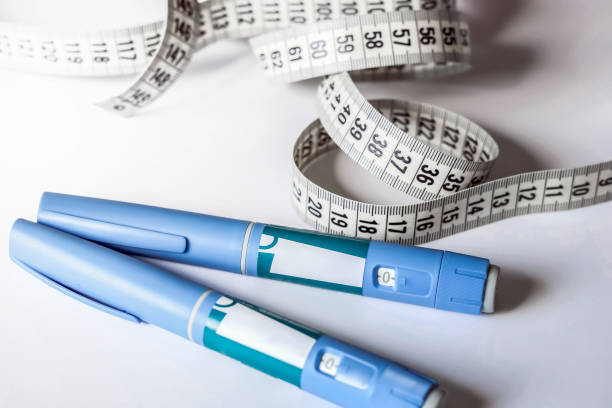How to Manage Side Effects of Weight Loss Drugs


While exercise, diet, and a positive mindset are all important aspects of weight loss, sometimes, they’re simply not enough. If you’re trying your best and those pesky pounds just don’t want to shed, medication may help.
But here’s the catch. While weight loss drugs may be all the rage these days with meds like Ozempic, they do come at a price. That’s why understanding potential side effects and how to treat them is paramount.
Whether you’ve been on weight loss drugs for years, or you’re just beginning to consider them, you gotta know some strategies.
Let’s cover the most common weight loss medicines, their side effects, and how to overcome them!
1. Orlistat
This commonly prescribed weight loss drug works by keeping fats from being absorbed in your digestive tract. However, changing the way your gut behaves may have consequences. While you may reduce your calorie intake, you may also trigger gastrointestinal problems like diarrhea, abdominal pain, and increased gas.
If you’re having these issues, consider eating less fat in your diet. Make sure to drink a lot of water to prevent diarrhea and discomfort as well. It’s always a good idea to take Orlistat with some small meal portions to increase its efficacy and minimize its side effects.
2. Phentermine
Unlike Orlistat, this drug doesn’t prevent fat absorption. Rather, it suppresses your appetite by affecting your central nervous system. Unfortunately, it’s also known to cause things like dry mouth, problems sleeping, and rapid heartbeat.
So what do you do? Well, for starters you can use sugar-free gum or lozenges to keep your mouth from getting dry. As with all these weight loss drugs, make sure to stay hydrated, and try to time your Phentermine dose in the morning so it doesn’t affect your sleep. If your heart rate does noticeably increase, contact your doctor as soon as you can.
Other medications or different doses may be prescribed.
RELATED: The Skinny on Weight Loss Injections: Safety, Efficacy, and Proper Usage
3. Topiramate
Topiramate is actually used in conjunction with Phentermine to keep your appetite down and reduce your intake. However, together, this one-two punch can sometimes knock you out! Some users report cognitive issues such as memory and concentration difficulties. Others have noticed strange tingling and numbness in their extremities. Some people even complain of dizziness and lack of balance or coordination.
Fortunately, you can take some steps to minimize these issues. Mental exercises, sometimes called neurobics, are one great way to stimulate memory and address cognitive challenges. Try puzzles, cards, chess, or even apps like Lumosity.
Also, be sure to allow some time to adapt. As your body and brain adapt, it’s a good idea to avoid activities that require a lot of balance and coordination. And as always, stay well hydrated!
4. Naltrexone-Bupropion
Impacting the brain’s reward system, these two drugs combine to control your cravings and bring your appetite down. Unfortunately, sometimes the effects are too pronounced and can upset the delicate balance of your gut-brain connection!
If you experience nausea and vomiting, dizziness, or headaches, don’t stress. You can make many simple changes to manage these symptoms. First, try to eat more frequently in smaller portions. For headaches and dizziness, good ol’ hydration (preferably with electrolytes) can help a lot. So too can just resting for a bit.
Finally, if none of this works, speak to your doctor. You may need to change medicines or adjust the dose.
5. Semaglutide
Ozempic and Wegovy are the two big brand names these days. They essentially work by mimicking a hormone responsible for appetite and glucose metabolism, and in doing so, can be quite effective for weight loss. Unfortunately, several people prescribed have experienced symptoms like abdominal pain, vomiting, diarrhea, and nausea.
To manage these symptoms, begin slowly. Increase the dose if your body tolerates the medicine, and speak to your doctor regularly about any issues. Also, adjust your diet if you can to lighter foods that don’t weigh down your stomach. As you go, track your symptoms in a log and let your doctor know of any changes or concerns.
Like anyone, opt for balanced meals. You want fruits, veggies, whole grains, lean proteins – the whole nine yards.
You also want to avoid consuming excessively high-fat foods, as these often contribute to side effects.
Other than that, it’s nothing too radical. Exercise when you can, try to get consistent sleep, and use activities like yoga, stretching, and mindfulness to alleviate stress. As long as you keep in close contact with your doctor, monitor your health and well-being, and don’t do anything over-the-top, you should be good.
While weight won’t just disappear overnight, with a comprehensive approach, you can reach and maintain a healthy weight for a long and healthy life.




